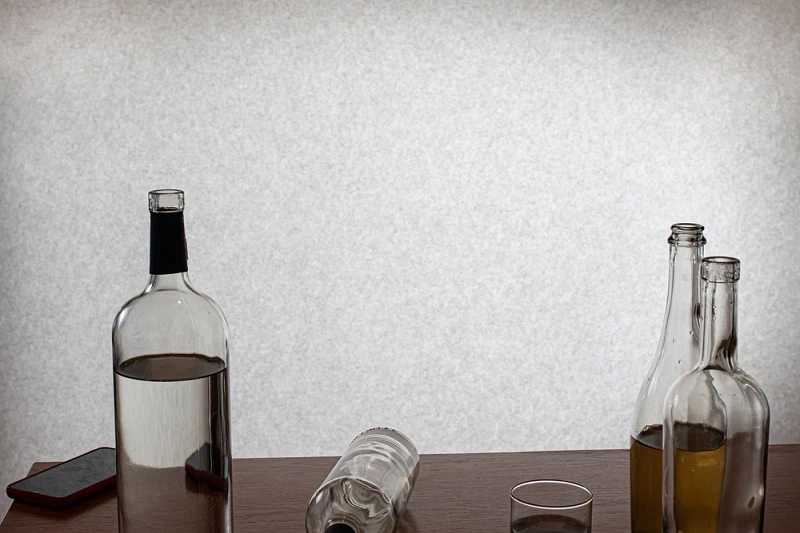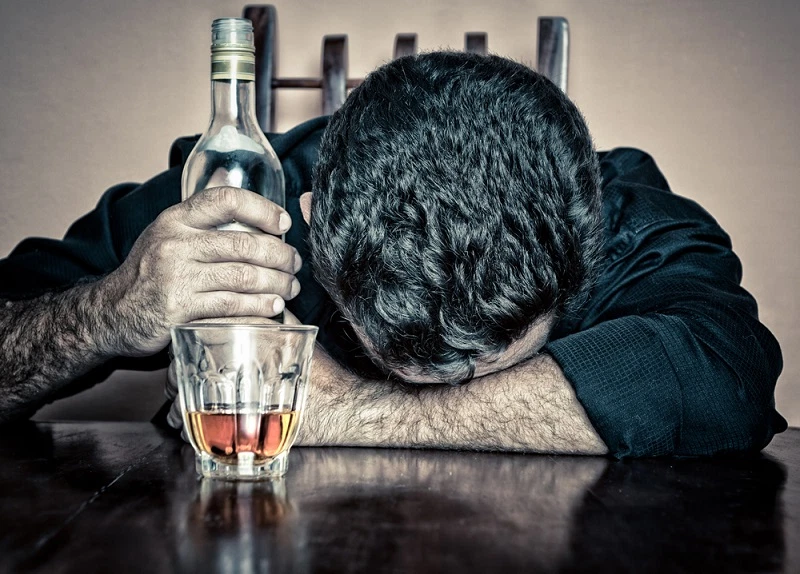You have just had a nasty confrontation with your confidant and feel so betrayed, so you pass by your favorite bar to grab one for the road to calm your brain. The big question is, does alcohol make depression or does it help you manage it? To answer this, let’s look at the issue objectively.
How Does Alcohol Affect the Brain?
You will probably stagger after a few bottles or shots of your favorite drink. Although those around you might see the outward presentation, alcohol mainly affects the brain in these ways:
- Subliminal intoxication. It is the first stage of intoxication and occurs when the blood alcohol content (BAC)is at its lowest, around 0.01-0.005. At this stage, you might appear strong and steady at this point, except for bloodshot eyes.
- Euphoria. Once you take more than a bottle of alcohol, the BAC increases significantly and, in turn, increases the production of dopamine, the pleasure hormone. Those around might note slightly impaired judgment and reasoning, including repeating your statements or questions. On your side, confidence shoots sky-high, and the body relaxes significantly. You will most likely reach this stage when your BAC levels go between 0.03 and 0.12.
- Excitement. The excitement stage is what most drunks crave and occurs when the BAC is between 0.09 and 0.25. The frontal lobe, occipital lobe, parietal lobe, and temporal lobe are affected significantly at this stage. It is easy to identify a person at this stage due to slurred speech, limited body control, and blurred vision. Your reaction time drops significantly; you experience nausea and mood swings.
- Confusion. When you see a drunk person looking so confused, just note their BAC is between 0.18 and 0.3. At this level, the cerebrum, responsible for controlling coordination, is severely affected, hence the staggering. The hippocampus, the part responsible for making new decisions, is severely affected, increasing the risk of causing accidents or harming yourself.
- Stupor. When the BAC gets to 0.25, the chances of getting alcohol poisoning increase significantly. At this point, you are likely to get injured, suffocate, and blackout since the brain’s sensory, motor, and decision-making functions are severely impaired.
- Coma. Once the BAC gets to 0.35, you might sink into a coma since the brain’s motor, reflex, respiration, and circulation functions are completely compromised.
- Death. When the BAC gets to 0.45, the risk of death becomes imminent since the brain is completely impaired and cannot control body functions.
What is the Link Between Alcohol and Depression?
Functional alcoholics religiously defend their drinking lifestyle, claiming alcohol does not cause or trigger depression, which is a fallacy. Numerous studies and experiments have revealed how alcohol affects depression, and how alcohol makes depression worse. This is a simple answer to your question, “Why does alcohol make depression worse and how does it occur?”

- Reduction of folic acid levels. Folic acid is a crucial element in the body since it helps form red blood cells. The red blood cells carry oxygen to the rest of the body, including the brain. When you take alcohol, it inhibits the production of red blood cells, increasing the risk of developing anemia. Anemic symptoms include irritability, lethargy, tiredness, lightheadedness, and headaches, which could lower your moods. A recurrence of these symptoms increases the risk of developing depression.
- Lowering the norepinephrine and serotonin levels. Norepinephrine and serotonin help the brain to regulate moods and emotions. When they are at optimal levels, you are likely to appear energetic, happy, and attentive. When you take alcohol, these neurotransmitters are suppressed, leaving you feeling like an empty vessel. As a result, you are likely to be easily irritable, anxious, depressed, and feeling worthless. The situation gets worse if you are already diagnosed with depressive symptoms.
- Suppressing Appetite. If you have ever interacted with an alcohol addict, you might have noticed that their appetite is at an all-time low. More often than not, they are likely to be picky with their meals to save an extra coin for the booze. Failure to take a balanced diet affects the brain, making them moody, a depressive symptom.
- Affecting sleep patterns. People respond differently to alcohol, with some experiencing insomnia and staying awake all night. Other people get hypersomnia, whereby they sleep for a long time. Sleep deprivation and oversleeping are both unhealthy since they affect the balance of all neurotransmitters, leaving you confused and easily irritable.
- May lead to isolation. Some people drink in isolation, especially in a society where alcohol is frowned upon. Anytime they want to drink, they isolate themselves and stay away from people until they are sober. As one gets hooked to the bottle, the guilt of drinking in isolation creeps in, making them feel ashamed. The more alcohol addicts isolate themselves, the more they feel guilty and helpless. Finally, the isolation pushes them to depression.
How To Manage Depression and Alcohol Dependency
Now that you have known how alcohol affects depression, it is time to learn how to manage the condition. These strategies would help you deal with alcohol dependency and depression effectively:
Distract Your Brain Through Healthy Lifestyles
If you are dealing with severe alcohol dependence and depression, look for healthy ways to keep yourself busy and distracted. Try out farming, solve mathematical equations and quizzes, practice yoga, draw, and try out different recipes. The more you distract your brain, the more you will adapt and overcome both setbacks.

Exercise
Anytime you are idle, the urge to get alcohol increases significantly, arousing depressive symptoms. It is advisable to exercise when you feel the body starts to give in to thirst. Exercising activates the neurotransmitters, making you happier, more outgoing, and energized.
Reduce the Alcohol Intake
Stopping alcohol intake at once increases the risk of relapse and withdrawal symptoms, worsening depression. Instead, you should gradually reduce the amount and interval of alcohol intake until the body adjusts accordingly. During this stage, you should stop self-blame since it only worsens the addiction.
Take a Lot of Water
High BAC leads to dehydration which might induce thirst, headaches, and depressive symptoms. Instead of taking alcohol, you should take water to hydrate your body to suppress all the depressive symptoms.
Summary
Now you have the answer to the most commonly asked question, “will alcohol make depression worse?” If you are struggling with alcoholism and depression, use the above strategies to improve your overall health. It is clear that alcohol increases depression in the long run and as such, you should get professional help from therapists and rehabilitation centers.
